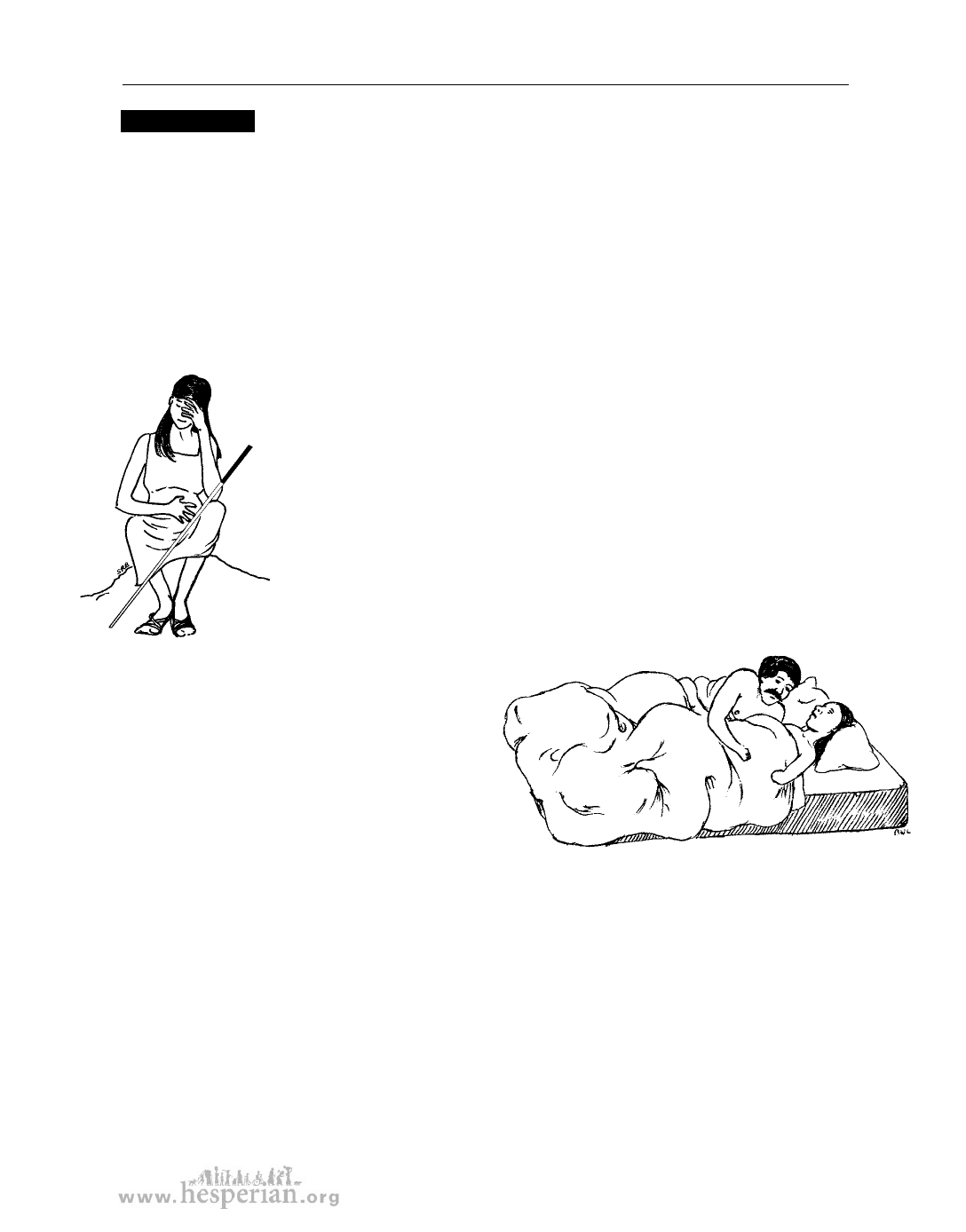
Possible problems during sex 153
IMPORTANT During sex, some women with a spinal cord injury can get
sudden high blood pressure with pounding headaches, flushed or red skin, or a
fast heartbeat. This is called dysreflexia and can be a serious health problem. To
help prevent this, make sure you pass urine and stool before having sex. For more
information about dysreflexia, see pages 117 to 119.
Feeling too tired
Your disability may sometimes make you feel tired for much of the day. Or you
may take medications that make you feel tired. This can make you less interested in
having sex. Try to have sex at the time of day when you feel the least
tired. If that is not practical, ask a health worker if it is safe to take
your medicine at a different time of day.
If you get tired easily, or your muscles are not very strong, you
may also find it easier to have sex more slowly or gently, because
it will take less energy.
If you are feeling too tired for passionate sex, you can still
find ways to give your partner pleasure, and you can ask your
partner to caress you. Often, a loving touch can reduce a
woman’s pain and help her sleep better. It can also bring great
joy to her and to her partner as well.
Lack of desire
Many things can cause a woman to feel
less desire or pleasure from sex. Some of
these things may come from a woman’s
disability, and some may come from
other reasons. You may feel less desire if:
• you are tired from hard work, from
not eating enough, from a new baby, or from your disability.
• you have a partner you do not like or who treats you badly.
• your disability causes you pain and it hurts to move.
• you feel badly about your body or ashamed about your disability.
• you are depressed or feel very sad most of the time.
• you have been hurt or forced by someone in the past to have sex.
• you are afraid of becoming pregnant or of getting a sexual infection.
When a woman lacks desire, her body makes less of its natural wetness, and she
may need to use lubrication so that sex is not painful (see page 151).
A Health Handbook for Women with Disabilities 2007